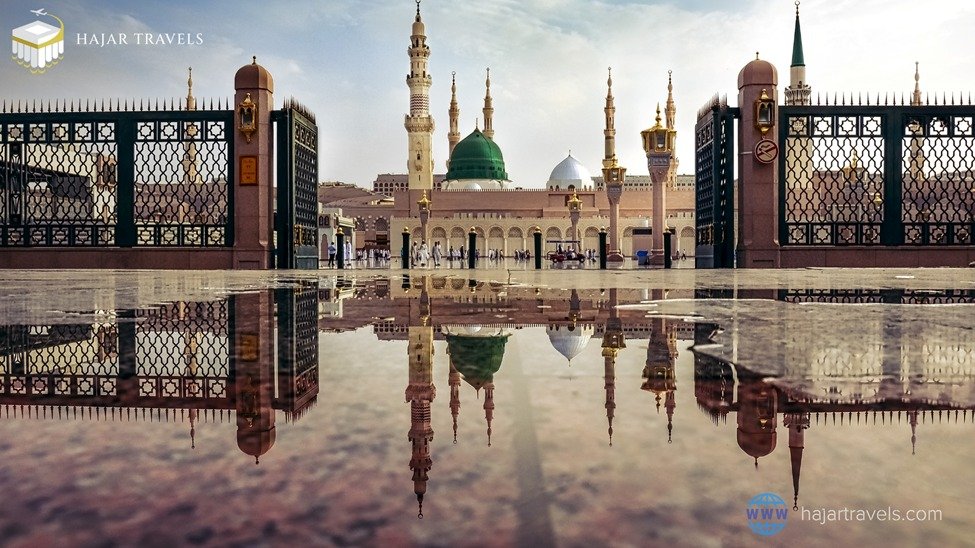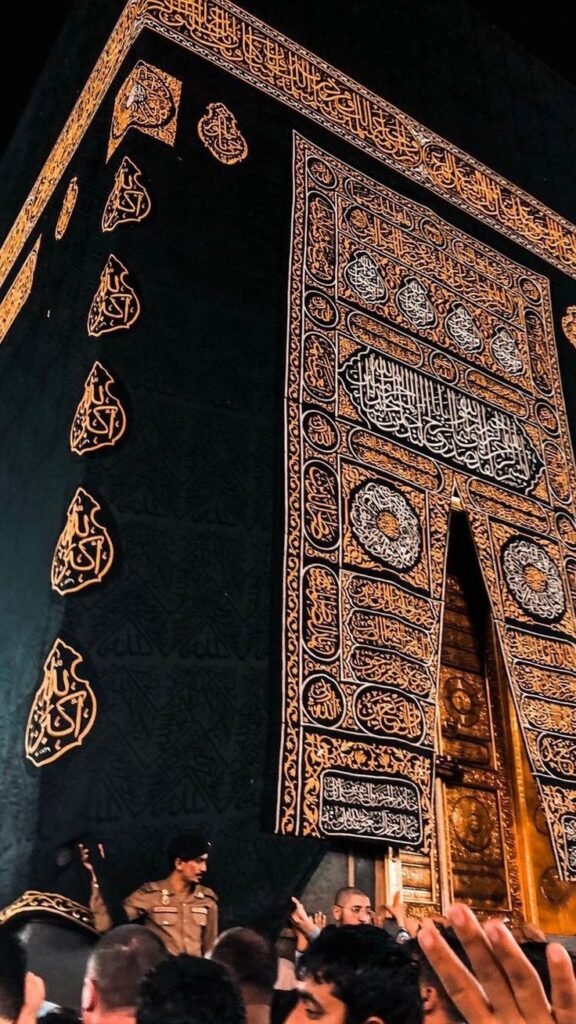Saudi Arabia serves as a very important country in the religious aspects since it possesses the two most religious cities in the Islam religion -Mecca and Medina. Hajj and Umrah are rituals of pilgrims which have turned out to be the most important components of Islamic faith in which millions of adherents all over the world pay a religious visit to Saudi Arabia annually. But other than the religion one should also learn the culture and etiquette in Saudi Arabia to ensure that he has meaningful and devout experience there. Hajar Travels tries to assist pilgrims not only in the accomplishment of their religious life but also in the trampling with Saudi culture which will provoke admiration and cognizance.
There are other fundamental issues about Saudi culture and etiquette which in this article we will discuss on issues that should be known by pilgrims visiting the Kingdom. Whether it be the daily practices and even dress codes to the way the communication can be done and even the way eating is done, these cultural tips will enhance your pilgrimage journey and make communicating within the Saudi Arabia culture an easy task.
Saudi Culture for Pilgrims
It is necessary to understand, before going into particular cultural norms, that Saudi Arabia is a very conservative state. The latter is the cradle of the Islamic faith and believes therein strict interpretations of Islamic laws as displayed in its everyday life. Not only of all that will increase the experience of pilgrims visiting Saudi Arabia, but also it helps to express the respect to people and their traditions.
The hospitality is a special aspect of Saudi culture, and pilgrims can be treated with supreme kindness and respect. Saudis also place great honor in religious activities and the same spirit radiates in the superb services during the Hajj service and Umrah services as well. By preparing yourself on local etiquette, not only will you abide by cultures but will also increase your experience and make your trip more valuable and smooth. In case of Umrah Packages, this knowledge of traditions can make a pilgrimage pleasant and enjoyable.
The Dress Code in Saudi Arabia
The dress code can be regarded as one of the most crucial points of Saudi culture that the pilgrims are to follow. Modesty is the major concern, whether a man or a woman. During this pilgrimage, pilgrims must be dressed in a particular way especially during Hajj and Umrah. But beyond these religious outfits the visitors also need to watch what to wear.
Men must be told to wear modest and baggy clothes. Exposing clothes or breathing are not applicable in Saudi Arabia. Nevertheless, female folks must be clad up in an abaya (a black cloak) when out in the open. Abaya is required to cover the whole body; however, it is not obligatory to hide all the parts including the face or the hands. Though women are not obliged to wear hijab in every location in The Kingdom, there are other locations where they will be willing to wear it to more religious tourist destination or areas that are more conservative. It is equally necessary to say that clothes must not have any indecent text in them and drawings which can be offensive to culture of the people.
Greeting Etiquette in Saudi Arabia
Regarding the greeting, we should keep in mind that social relations in Saudi Arabia are characterized by generally formal nature, and they are formal, in particular, when accompanied by strangers. A normal mode of greeting in the Saudi is through shaking of hands, although sometimes this may differ depending on the gender. It is also strongly possible that women do not shake hand with men in public as much as men would shake hands with men. There are instances where it can be as simple as nodding or greeting with a word like As-salamu alaykum (Peace be upon you).
Saudis are quite hospitable and there is nothing unusual about when they invite you to have a coffee or a tea. Once you receive an offer of food or drinks it is acceptable to accept them even when you are not so much hungry or thirsty. It can also be considered rude to say no, but there is no problem saying no in case you have any dietary restrictions or preferences.
Saudi Dining Etiquette
The culture of Saudi is a great part of dining and most of the meals are viewed as a way of hospitality and mingling. To make sure that they will respect local customs and still indulge in the favor of the local food, pilgrims should be acquainted with Saudi dining manners.
In cases where one is eating, the correct hand to use is the right hand both in serving food and consumption of food. Using the left hand is believed to be a poor etiquette and should not be done on these duties. The style of eating meals is also normally communal, in which food is also shared among family members and visitors. Consumption using hands is also acceptable in Saudi Arabia where people tend to use their hands whenever consuming popular local foods like kabsa or hummus. Nevertheless, most restaurants will offer utensils to people who like to use such a tool.
Besides that, it should also be mentioned that alcohol is strongly forbidden in Saudi Arabia and it is not recommended to bring or drink alcohol in Saudi Arabia. Likewise, one cannot eat or drink in the streets when the fasting time is on in Ramadan since that will be defaming the fasting persons.
Respect for Religion and Religious Practices
The religion is a major feature in the Saudi society and pilgrims should also be sensitive to the religious practices in the area. The Kingdom of Saudi Arabia is a highly religious state and it is being heard five times during the day that the call to prayer or Adhan is being sung everywhere in the country. Worshiping is usually done in times of prayer and shops, restaurants among others might be temporarily closed to participate in the prayers. Pilgrims should respect such breaks and base their activities on them.
Ramadan is the month of fasting which is the most sacred to the Muslims. Ramadan is the period in which Muslims avoid food, water, smoking and others of their physical needs by the day and indulge in them at night. Pilgrims are advised to put this into consideration and not to eat and drink in the street during fasting times especially in more conservative parts of the country.
Gender Segregation in Saudi Arabia
In Saudi Arabia, the segregation of the sexes is strongly restricted in several public instances and is questionable even in the social activities as well. Although it is possible that men and women interact within religious context like during the Hajj and Umrah, it should be noted that in the outside world, men and women are known not to mingle in places like parks, restaurants and even the transport facilities.
Just like in a public place, there will be instances of separation of women and men who are seated in separate areas. Other cultural concepts may be imposed further on women and they may also be less free in dealing with other men beyond their close family or husband. Pilgrims are supposed to be keen to these gender standards and abide by the limits established even though they might not be what they are used to in other countries where they exist.
Public Behavior and Personal Conduct
Saudi Arabia possesses severity in law enforcement as far as the way people act in the street and the way people conduct their lives. Sexual touch, whether it is hugging, kissing, or holding hands is unacceptable in the Saudi society, especially between men and women, who are not married or are not related. Pilgrims ought not to practice anything that may be regarded as unacceptable or unrespectful.
This also discourages being very loud or am a nuisance in the streets. Pilgrims are supposed to act in a relaxed and respectful manner whenever they are in areas of the population. This is particularly true in religious sites such as in the Mosque al-Haram in the town of Mecca and the mosque of the prophet in Medina where the silence and sanctity are much required.
Conclusion
It is important that pilgrims know Saudi culture and etiquette and as a part of it they need to know about it when they are going to Mecca and Medina. Pilgrims will have to watch out about the conservative values of the country especially when it comes to dressing, public conduct, and also religious activities. Through these cultural norms and respecting the local norms, pilgrims will give their pilgrimage time a meaning not only to their spiritual satisfaction but also cultural enrichment.
At Hajar travels we take time to ensure that our clients are armed with as much information as they require in order to go about the Saudi culture without challenges. One should welcome the traditions of respect, hospitality and humility; this way, the pilgrims will improve their journey and make sure that their adventure in Saudi Arabia will be peaceful, full of contemplations and self-improvements.



